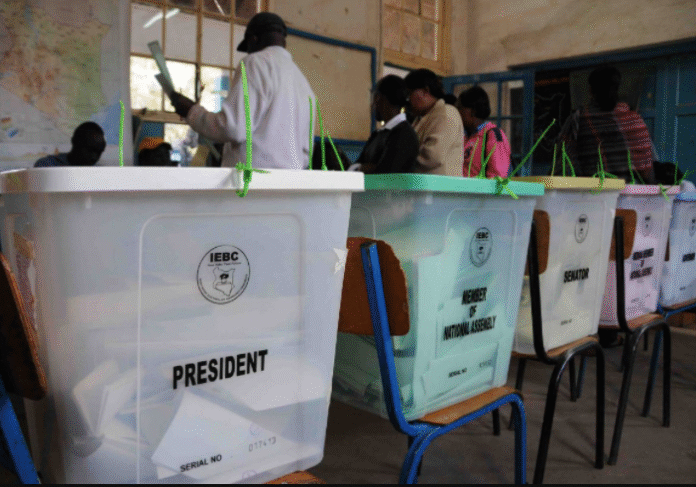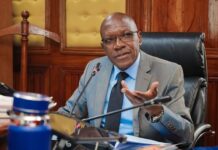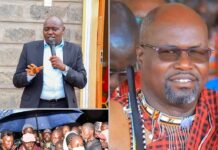With just two years left before Kenya’s next general elections, the country stands on the precipice of a constitutional and electoral crisis, as the Independent Electoral and Boundaries Commission (IEBC) remains in limbo, lacking commissioners, missing legal deadlines, and operating with a limited mandate.
Since the exit of its last commissioners in January 2023, the IEBC has remained a shell, with its secretariat holding fort but lacking the authority to make binding policy decisions. Critical electoral tasks such as voter register verification, technology procurement, and boundary delimitation have all stalled, some well past their constitutional deadlines.
The situation worsened on May 20, 2025, when the High Court suspended the vetting process of President William Ruto’s IEBC nominees, following a legal challenge questioning the legitimacy of their selection. The Justice and Legal Affairs Committee (JLAC) of Parliament, which was scheduled to begin the vetting on May 26, now waits for a ruling from Justice Lawrence Mugambi on May 29.
The seven nominees, including Erastus Ethekon for Chairperson and six others for Commissioner roles, now face an uncertain path to office as the clock ticks toward the 2027 election.
Missed Mandates and Constitutional Deadlines
The IEBC’s core functions, such as organizing by-elections, conducting boundary reviews, and maintaining the voter register, have been paralyzed. Since 2023, no by-elections have been held to fill vacant parliamentary or county assembly seats, denying representation to affected constituents. The delimitation of electoral boundaries, mandated every 8 to 12 years by Article 89 of the Constitution, was due by March 2024. That deadline came and went with no action.
A 2010 constitutional compromise had allowed the creation of 27 under-populated constituencies with the caveat that a proper boundary review would justify their existence. Without this review, these constituencies, including Moyale, Isiolo North, Kuria West, and Lamu East, risk being dissolved before the 2027 polls.
IEBC CEO Hussein Marjan has since petitioned the Supreme Court for guidance on whether a boundary review can be conducted without commissioners. The court has yet to rule.
Electoral Technology and Time Constraints
Kenya’s electoral processes heavily rely on technology, including the Kenya Integrated Election Management System (KIEMS) and Biometric Voter Registration System (BVRS). These tools require procurement and upgrades well ahead of elections, tasks that are impossible to undertake without a fully constituted IEBC.
A delayed appointment process not only jeopardizes timely procurement but also shortens the period available for public awareness campaigns, stakeholder consultations, and staff induction — increasing the risk of operational failure and public distrust in the outcome of the 2027 election.
Political Gridlock and Institutional Lapses
Efforts to reconstitute the commission have been marred by political bickering and institutional inertia. The National Dialogue Committee (NADCO) proposed an expanded nine-member selection panel to handle IEBC appointments, a recommendation that was finally acted upon in February 2025, more than a year after the commissioners’ terms ended.
Yet, progress remains slow. Senate leaders are now demanding to be involved in the vetting process, arguing that a matter of such national significance cannot be left to the National Assembly alone, risking further delays in a race against time.
Justice Isaac Lenaola, speaking in December 2024, criticized Parliament and the Executive for their lethargy, suggesting a public campaign to demand accountability. “Why don’t we have a hashtag, #AppointIEBCNow, and spread it?” he posed, urging civic engagement to pressure leaders into action.
A Pattern of Late Appointments
Kenya has a history of last-minute IEBC appointments. The previous commission, led by Wafula Chebukati, was appointed just months before the 2017 elections. The infamous “Cherera Four” were similarly appointed in the run-up to the 2022 vote, only to resign under political pressure.
The pattern has had serious consequences: rushed inductions, poor preparedness, and repeated post-election legal battles that test the judiciary and deepen public skepticism.
The Path Forward
The stakes are high. Without immediate intervention by Parliament, the Executive, and the Judiciary, Kenya risks heading into another high-stakes election under-prepared and under-represented. If the IEBC is not reconstituted in time, the legitimacy of the 2027 general elections could face major legal and political challenges.
At the heart of the matter lies a simple truth: democracy requires planning, foresight, and trust. With time fast running out, Kenya must act, decisively and transparently, to restore its electoral agency and safeguard the integrity of its democratic process.
Written By Rodney Mbua



















